Last September 3, Jean-Christophe Yoccoz passed away after a long battle against illness. He was an incredible man whose huge influence on this blog and, more generally, on my mathematical life, is certainly evident to some readers.
Nevertheless, as my close friends know, Jean-Christophe’s influence on me goes way beyond Mathematics, and, after spending the last month trying to cope with this terrible loss, I believe that today I’m now ready from the emotional point of view to talk a little bit about the extraordinary role model he provided to me.
Since there is no doubt that Jean-Christophe’s mathematical work will be always a recurring theme in this blog, for now I prefer to postpone all purely mathematical discussions/hommages. Instead, this post contains some `souvenirs’ of my 9 years of friendship with Jean-Christophe as a way to pay a modest tribute for all fantastic and unforgettable moments (both inside and outside Mathematics) shared with him.
1. Prologue
I saw Jean-Christophe for the first time during the International Conference on Dynamical Systems held at IMPA in July 2000. Indeed, Jean-Christophe entered the auditorium Ricardo Mañé accompanied by his son (coincidently born in 1984 like me) and wife to deliver a talk about his joint work (of 217 pages) with Jacob Palis (published in 2009).
I remember that I got lost after the first 5 minutes of Jean-Christophe’s lecture, mainly because at that time my mathematical background (of a first year PhD student) was not appropriate.
Remark 1 Retrospectively, I find it funny that, even though I could not understand this talk at the time, I would join Jean-Christophe and Jacob in 2009 in the investigation of some open questions left open by their paper.Indeed, I started working with them on this subject by accident: I was present at Collège de France when the offprints of this paper of Jean-Christophe and Jacob arrived by regular mail, and we started right away to “celebrate” it by drinking a coffee while informally discussing the problems left open in this work; at some point, our informal conversation became serious because we noticed an argument allowing to improve the information on the stable sets of the so-called non-uniformly hyperbolic horseshoes.
After this initial success, Jean-Christophe laughed out while saying (as a joke) that we should ask the journal to stop printing the article so that we could add to it an appendix with our brand new result, and, in a more serious tone, he proposed to use this “low-hanging fruit” as the beginning of a separate article (still in prepartion …) on this topic.
2. My first conversation with Jean-Christophe
After finishing my PhD in 2004, I started looking for post-doctoral positions. In 2006, Jean-Christophe was visiting IMPA (and also attending ICMP 2006), and my friend Gugu (an IMO gold medalist who finished his PhD at the age of 20 years-old) strongly encouraged me to ask Jean-Christophe whether he could eventually supervise my post-doctoral `sejour’ in France.
Despite Gugu’s advice, I was hesitating to approach Jean-Christophe. In fact, even though a transition from Brazil to France would be relatively smooth under Jean-Christophe’s supervision (partly because his wife was Brazilian and, thus, he spoke Portuguese fluently), I was not sure that I could handle the pressure of becoming the third Brazilian post-doctoral student of a brilliant French mathematician whose expectations about Brazilian post-doctoral students were very high: indeed, his previous experience with Brazilians was to supervise the post-doctoral `sejours’ of Gugu himself and Artur Avila.
After many conversations with Gugu and my wife, I finally got sufficiently motivated to knock the door of Jean-Christophe’s temporary office at IMPA, introduce myself and ask him to be my post-doctoral supersivor: after all, at worst I would simply get a `no’ as an answer.
So, I knocked the door of his office and he called me in (by saying `Oui, entrez’). I told him that I was looking for a post-doctoral advisor, I asked if he could advise me, and, when I was about to give him more details about the kind of Mathematics I have done so far, he gave me a big smile and he said: “There is no need for formal presentations: Gugu talked to me about you and it would be an honor to me to be your post-doctoral advisor.”
Such a kind and humble response was certainly not what I was expecting. In particular, I was still under the `shock’ when I told him that I was very happy to hear his answer. Then, I quickly left the office, and my wife (who was waiting for me) saw my puzzled face and asked me: “So, what he said? Do you think the conversation went well?”. Here, I simply replied: “I’m not sure, but I think the conversation went well: if I heard it correctly, he told that it would be an honor to him to be my advisor.”
Of course, these two traits (kindness and humbleness) of Jean-Christophe’s personality are well-known among those who met him: in particular, Gugu was not surprised by his answer to me (and this is probably why Gugu insisted that I should talk to Jean-Christophe in the first place!).
3. My post-doctoral `sejour’ in France
Several bureaucratic details made that I started my post-doctoral `sejour’ in France in September 17, 2007, i.e., almost one year after my first conversation with Jean-Christophe.
Since the first day of my post-doctoral `sejour’, Jean-Christophe was always very kind to me. For example, he offered me an office next to his own office, so that we could drink coffee, have lunch together and talk (in Portuguese) about many topics (including Mathematics) regularly.
Also, he would never hesitate to stop his research activities to help me with daily problems (e.g., openning a bank account to get my first salary): indeed, his constant support made that my first two years in France were quite smooth and, of course, this gave me the time needed to learn French.
Remark 2 Here, he gave the following precious advice: I would learn French more easily by seeing the news on TV because it is easier to absorb the information when just one person is talking calmly at a reasonably constant pace (indeed, this is what he did to learn Portuguese). Moreover, he put me in close contact with the secretaries, so that I would be forced to practice my French (because it was not possible to shift to Portuguese with them).
On the other hand, despite all his attention towards me, he left me completely free during the first year of my post-doctoral `sejour’. In fact, as he told me later, he thought that the post-doctoral `sejour’ was an important moment to develop our own ideas about Mathematics and, hence, it was not a good idea to impose to me any specific problem / research topic. In particular, he would limit himself to ask what I was doing recently and periodically invite me to give a talk in the Eliasson-Yoccoz seminar (so that the community would know what I was working on).
Consequently, we would start working in our first joint paper only in 2008…
4. Our first collaboration
Upon my return to Paris from a conference in Trieste (in August 2008), I talked to Jean-Christophe about the recently discovered example by Giovanni Forni and myself — later baptized Ornithorynque by Vincent Delecroix and Barak Weiss — of a translation surface with peculiar properties.
He got interested by the subject, and I started to explain to him the main features of the example: “the symmetries of this example are very particular because the Hodge structure on its cohomology …” After letting me end the description of the example, Jean-Christophe replied that, even though my explanation was mathematically correct, he was not happy because it does not allow to `put your hands in the example’. In fact, his phrase (who made a profound impact on me) was: “I don’t like to work on extremely abstract theories with highly sophisticated arguments. I prefer to understand things from a concrete point of view, by working with many concrete examples before reaching the final result. In particular, my `tactics’ is to cover the ground slowly via basic examples before exploring general theories.”
So, he thought that it could be a good idea to work together on a paper giving a explanation for the example in such a way that it could reveal more examples (ideally infinite families) with similar properties.
Frankly speaking, I also found that the original (Hodge-theoretical) arguments obtained with Giovanni had the drawback that they did not allow one to `touch’ the example, and, for this reason, I accepted Jean-Christophe’s offer to investigate more closely the Ornithorynque.
The first meetings related to our work in the Ornithorynque were quite curious: while he would never refuse to meet anytime in the morning (9h, 8h, 7h30, …), we usually would stop our discussions by 3:30 PM or 4 PM because, as he liked to say, by this time “he had runned out of energy”.
At some point, I asked him what time he used to arrive at his office (so that I could try to maximize the span of our conversations). He simply smiled and said: “Normally I wake up around 4:30 or 5 AM, I take the first train and I arrive here around 6 AM.” (Of course, this explains why he could meet me in the morning at any time.) In fact, thanks to his metabolism, Jean-Christophe just needed to sleep about 6 hours per night.
After struggling a bit with my own metabolism, I managed to adapt myself to Jean-Christophe’s rythm and this lead us to a small `competition’ to know how would arrive first at the office. Normally, I would arrive by 6:15 AM at Collège de France and, evidently, Jean-Christophe would be waiting for me with a bottle of fresh coffee (that he had prepared a few minutes ago at the kitchen of Collège), so that we would drink coffee together and talk about the latest news (on a variety of subjects: politics, chess, soccer, etc.) before starting our mathematical conversations. (In general, we would talk from 7 AM to 11:30 AM, take a break to have lunch together, and then come back to work until 3:30 PM or 4 PM.) However, it happened a couple of times that I managed somehow to arrive first in Collège: in every such occasion, Jean-Christophe would spend a couple of minutes explaining why he was `late’. Indeed, this was the natural attitude to him because Jean-Christophe was someone who liked to do his best in everything regardless it was a `small thing’ (e.g., arriving before me at Collège) or a `big thing’ (e.g., proving theorems).
Our work on the `Ornithorynque project’ was going well: the concrete approach of Jean-Christophe (computing tons of particular cases [including multiplying many 4×4 matrices by hand] at an extremely fast pace [which always forced me to be extremely concentrated to be able to follow him up…] for several hours in a row, always keeping an eye for `symmetries’ to reduce the sizes of calculations, etc.) introduced me to a whole new way of doing Mathematics. In particular, there is no doubt that my own vision of Mathematics completely changed by seeing so closely how the mind of a brilliant mathematician works. Moreover, despite the enormous differences in our mathematical skills, Jean-Christophe was always open to hear my ideas and suggestions (and I will always be grateful to him for such an humble attitude towards me).
The rapid and steady progress in `dissecting the Ornithorynque’ made that I did not want to completely stop working on it during the summer vacations in August 2009. So, I had no doubts that I should accept Jean-Christophe’s invitation to spend 10 days in his vacations house in Loctudy (in French Brittany). Since the vacations are sacred in France (it is usually very hard to contact French friends in August …), Jean-Christophe said that the amount of mathematical work in these 10 days would be decided by `chance’, or, more accurately, by the weather. More precisely, we did the following agreement: we would start our day around 5h30 and work until 8h30; if the weather was nice (i.e., not raining too much) outside, we would stop talking about Mathematics and we would go for a walking in the forest or a boat trip in nearby islands, etc.; otherwise, we stay at home working on the Ornithorynque.
In principle, this agreement meant that we would work about of the time because the weather in French Brittany is very unstable: one might see several `seasons’ within a given day …. However, as Jean-Christophe pointed out later, I was extremely lucky that it rained only in three days, so that we had plenty of leisure: we played pétanque, visited Île-de-Sein, etc.
The photos below illustrate such moments (during my second visit [in 2011] to Loctudy): the first picture displays Jean-Christophe plotting a strategy to improve the performance of our participation in a pétanque tournement in Loctudy (but my bad skills in this game made that we were kicked out of the tournement after three matches) and the next two photos show him in Île-de-Sein.
Remark 3 In Loctudy’s pétanque club, almost everyone knew that the well-known joke that `you can give mathematicians a hard time by asking them to split a bill in a restaurant’ did not apply to Jean-Christophe. In fact, the `standard procedure’ in the end of the tournement was to go to the bar, ask for a drink and wait for Jean-Christophe to compute (within 2 or 3 minutes) the rankings for the 42 or so participants, sizes of prizes, etc. Also, I overheard a conversation between a newcomer asking an organizer of the tournement: the newcomer was puzzled why everybody went take a drink instead to doing laborious calculations for setting rankings of participants, and the organizer smiled and said: “There is no need to worry. That guy over there will take care of all calculations in 2 minutes, and he knows what he is doing: indeed, he is a sort of `Nobel prize’ in Mathematics…”
5. Some anecdotes of Jean-Christophe
Closing this post, I would like to share some anecdotes about Jean-Christophe: in fact, instead of describing more details of our subsequent collaborations, I believe that the reader might get a better idea of Jean-Christophe’s personality via a few anecdotes about other aspects of his life.
Jean-Christophe participated twice in Samba school parades in Rio de Janeiro, and he always laughed at the fact he had all kinds of experiences in these parades: in his first participation, his Samba school won the parade, but in his second participation, his Samba school got the last place…
Jean-Christophe liked to laugh at the fact that if Internet existed before, then the failed attempts of many countries to name the bird `Turkey’ after its country of origin could have been avoided: indeed, the bird is called `Turkey‘ in English, ‘Dinde‘ (a variant of `D’Inde’, i.e., `from India’) in French, `Peru‘ in Portuguese, but the bird is originally Mexican.
Jean-Christophe was a strong chess player: his ELO rating was 2200+ at some point and we followed together many chess tournements via Chessbomb Arena (with particular attention to TCEC, a tournement for chess engines) during some breaks in our mathematical conversations, and he has many interesting anecdotes involving chess.
For example, he wrote here that his PhD advisor (Michel Herman) was so afraid that Jean-Christophe was spending too much time with Chess instead of Mathematics that he called Jean-Christophe’s parents for a conversation about his worries.
Also, once I invited Jean-Christophe, Gugu and Artur Avila for a barbecue at the vacations house of my wife’s family in Vargem Grande, Rio de Janeiro. At some point, we decided to play chess and, as usual, Gugu wanted to play against Jean-Christophe. For some reason, we thought that it could be a good idea to ask Jean-Christophe to play blindfold (with Artur and I moving the pieces in his place), while Gugu would play normally. After 25 moves or so, Gugu announces his move. Jean-Christophe takes a deep breath, spend a couple of minutes thinking, and then asks: `Gugu, are you sure about your move?’. Gugu says `yes’ and Jean-Christophe announces a checkmate in a couple of moves. Gugu is puzzled by Jean-Christophe’s claim, so he looks at the board and he comes up with the genius phrase in response to his blindfold friend: `Is it already checkmate? I could not see it!’ Of course, Jean-Christophe was right and, after laughing for a couple of minutes at Gugu’s phrase, we passed to the next match (Jean-Christophe versus me…).
Jean-Christophe liked sports in general: during his youth, he played rugby and he sailed together with his friends from École Normale Supérieure, and he followed on TV and newspapers many tournements (soccer, rugby, golf, snooker, …). In particular, we saw together several finals of the UEFA Champions League while drinking his favorite beer (namely, Guinness) and he followed on the hospital’s TV the Rio 2016 Olympic Games (which was especially interesting to him because he knew `Rio’s Zona Sul’ [where rowing and cycling took place]).
Finally, Jean-Christophe was an avid reader and an erudite person: he read (in French, English and Portuguese) many books and novels per month, he saw many movies, and he liked to go to museums. For example:
- he was happy when he learned that I read The Murders in the Rue Morgue (partly because Edgar Allan Poe was one of his favorite writers),
- he borrowed me Crimes Cèlebres by Alexandre Dumas and Ne le dis à personne (French version of a thriller novel) by Harlan Corben, so that I could improve my French,
- besides the classical in Brazilian literature (by Machado de Assis, José de Alencar, etc.), Jean-Christophe liked `Agosto’ by Rubem Fonseca. In fact, Jean-Christophe told me that he read the original book in Portuguese because he was not sure that the French translation was very good: indeed, the title of `Agosto’ — literally `August’ in English — was translated as `Un été brésilien‘ — `a Brazilian summer’ — reveals that the editors probably did a job of questionable quality since it is winter (and not summer) in Brazil in August …
- he was a big fan of Alfred Hitchock (among many other film directors): in particular, I will always remember with affection a `Hitchcock session’ in Jean-Christophe’s vacations house in Loctudy.
- after trying to read (unsuccessfully) `À la recherche du temps perdu‘ during his youth, Jean-Christophe spent the last months of his life (doing Mathematics and) re-reading all seven volumes of Proust’s novel …
6. Epilogue
Since a picture is worth more than a thousand words, I’m sharing below a couple of photos of Jean-Christophe (holding my daughter, next to my wife [during vacations in French Brittany], working with me at Mittag-Leffler institute on our joint paper with Martin Moeller, and together with Gugu, Artur, Fernando Codá Marques, Susan Schommer and myself in Artur’s appartment, respectively).
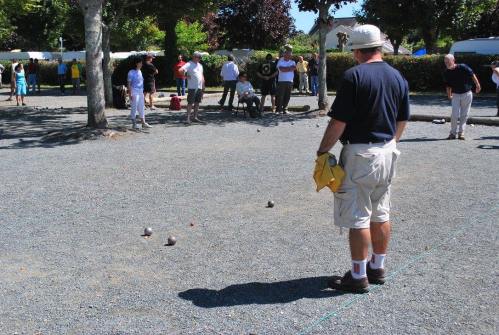
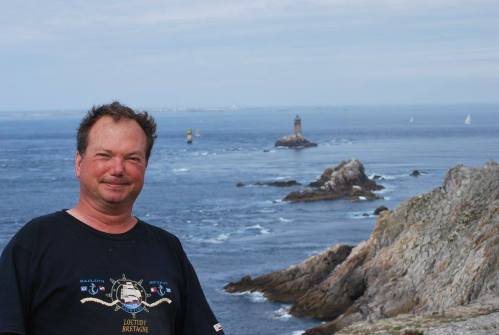
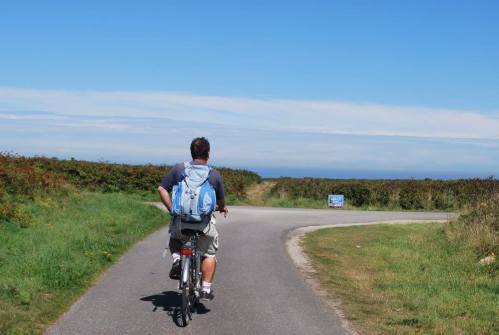
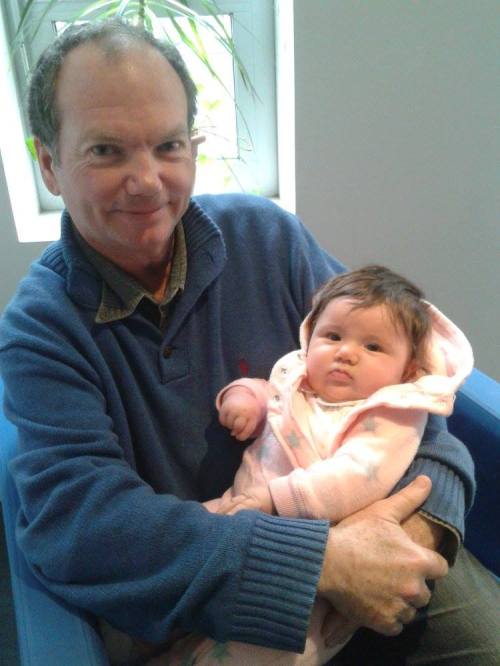
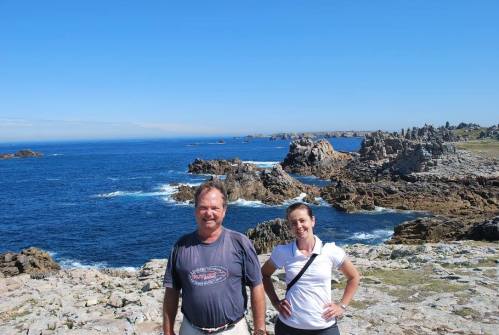
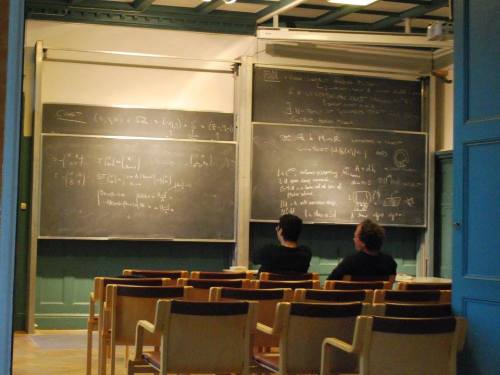
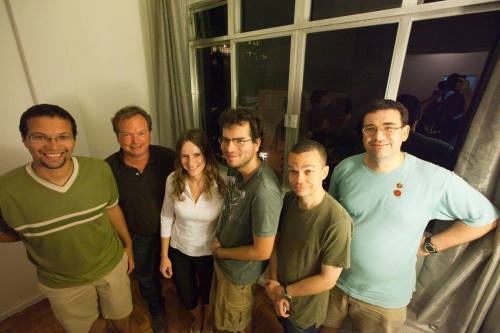
JC was indeed an extremely nice person. Every body that knew him will miss him a lot. Thanks for sharing those stories, Matheus.
By: Jairo Bochi on October 7, 2016
at 7:21 pm
BTW, I have a funny story about when the Springer Lecture Notes volume JC was looking for was missing from IMPA’s library. Maybe you remember it? 😀 Anyway it’s only funny in Portuguese (with a French accent).
By: Jairo Bochi on October 7, 2016
at 7:22 pm
Hi Jairo,
I remember this story (related to the second paper by JC and Gugu published in 2010)! 😀
As a `payback’, let me tell you (in Portuguese) another story about the adventures of JC in Brazil.
Quando ele foi de onibus do Rio para Sao Luis para conhecer a familia da Dalva, o seu sogro perguntou como eles tinham se conhecido. Nessa epoca, o JC ainda nao dominava o portugues e, por isso, ele misturava palavras em portugues e frances em suas frases. Em dado momento, ele fala para o sogro que, depois de ver a Dalva pela primeira vez, ele marcou um `rendez-vous’ com ela para conversar com mais calma num outro dia. Nesse instante, o sogro do JC fica furioso e retruca: `Voce tenha respeito, minha filha nao e mulher de rendez-vous’. (No Nordeste, `mulher de rendez-vous’ e um eufemismo para prostituta…) 😀
By: matheuscmss on October 7, 2016
at 8:04 pm
Minor correction: it is Edgar Allan Poe instead of Edgar Alan Poe. What a pity, only the good die young…
By: Matemáticos Chibchas on October 12, 2016
at 3:15 am
Thank you very much for this post, it makes a very vivid portrait of him. (He always had seemed one of the most mysterious Fields Medalists to me, but not anymore ; in particular I did not know he had such strong links with Brazil).
By: some_french_reader on October 13, 2016
at 5:42 pm